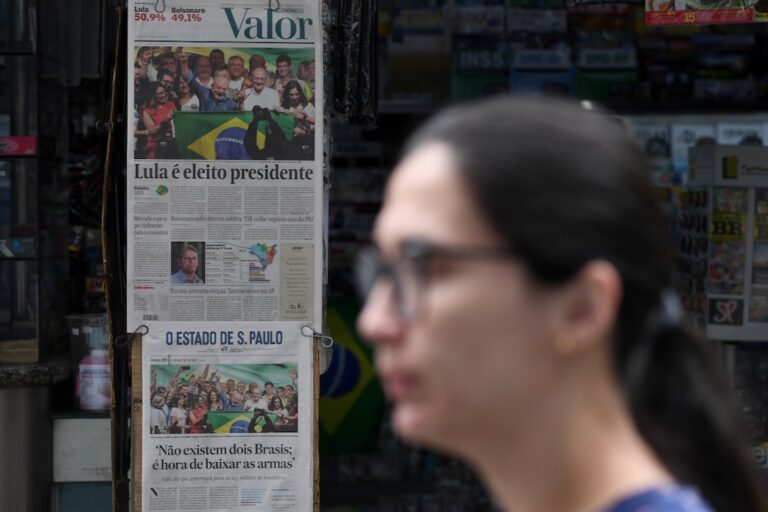Judge Paulo César de Carvalho has issued a preliminary injunction ordering the removal of Secret—an anonymous sharing application that lets people share messages with friends, friends of friends, or publicly—from the Apple App store.
Last week was a bad one for freedom of expression in Brazil. Judge Paulo César de Carvalho, in the state court of Espírito Santo, issued a preliminary injunction ordering the removal of Secret—an anonymous sharing application that lets people share messages with friends, friends of friends, or publicly—from the Apple App store and Google Play store, as well as Cryptic (Secret’s application for the Windows Phone) from Microsoft’s store. The injunction also ordered the three companies to remove the applications from phones belonging to their Brazilian users.
What’s the problem? The prosecutor alleges:
“…people are falling victim to embarrassment and violations of their honor without being able to defend themselves, given the anonymity of the postings, since the application SECRET ‘allows the user to tell their own or friends’ secrets to Facebook contacts anonymously through the application,’ and since its developers themselves claim that ‘it’s impossible to determine who told the secret, since there’s no data or photo of the user and they guarantee that ‘there’s no risk of the secret leaking out on Facebook,’ since ‘the most information that’s revealed is that the message was published by a friend or by the friend of a friend on the app.’”
Furthermore, the prosecutor argues that because any removal request must be sent in English to an American judge via the Brazilian foreign ministry, there is no effective way for Brazilians to defend themselves against defamation.
And why is anonymous speech a problem in Brazil? The judge cites two sections of the Brazilian Constitution:
Chapter I, article 5, section IV: The expression of thought is free, anonymity being forbidden; and
Chapter I, article 5, section X: Intimacy, private life, and the honor and image of persons are inviolable, ensuring the right to compensation for material or moral damages resulting from their violation.
The judge quoted, at length, Brazilian legal scholar Daniel Sarmento, explaining that the right to freedom of expression is not absolute and that “those who act in an abusive manner in their exercise of this right, and thereby cause damage to third parties, may be held responsible for their actions.”
Opposing counsel argued that Secret does not violate the constitution because it is technically possible for the company to trace who is posting anonymous messages through email and phone records. Representatives from Secret informed a Brazilian paper that they would comply with a valid court order to hand over user data if it received one.
Will Brazilians really be losing their Secret apps in just a few days? In some cases, yes. Apple has already complied. But Apple, Google, and Microsoft will have an opportunity to appeal.
While Brazil has led the way in government support of open source culture and explicitly condemning mass surveillance, its Constitutional ban on anonymous speech poses a tremendous danger to free expression in Brazil. Anonymity may make it more difficult to hold bullies accountable for their speech, but it also has a chilling effect on victims of all forms of violence and abuse, people with unpopular opinions, minorities, and vulnerable populations. Banning anonymous speech also chills dissent against the government. In 2011, Special Rapporteur on Freedom of Expression and Opinion, Frank LaRue, called upon states to ensure that individuals have the right to express themselves anonymously online. In 2013, in a landmark report, he explicitly made the link between anonymous speech and privacy:
“The right to privacy is often understood as an essential requirement for the realization of the right to freedom of expression. Undue interference with individuals’ privacy can both directly and indirectly limit the free development and exchange of ideas. … An infringement upon one right can be both the cause and consequence of an infringement upon the other.”
EFF will be keeping a close eye on this case as it develops



